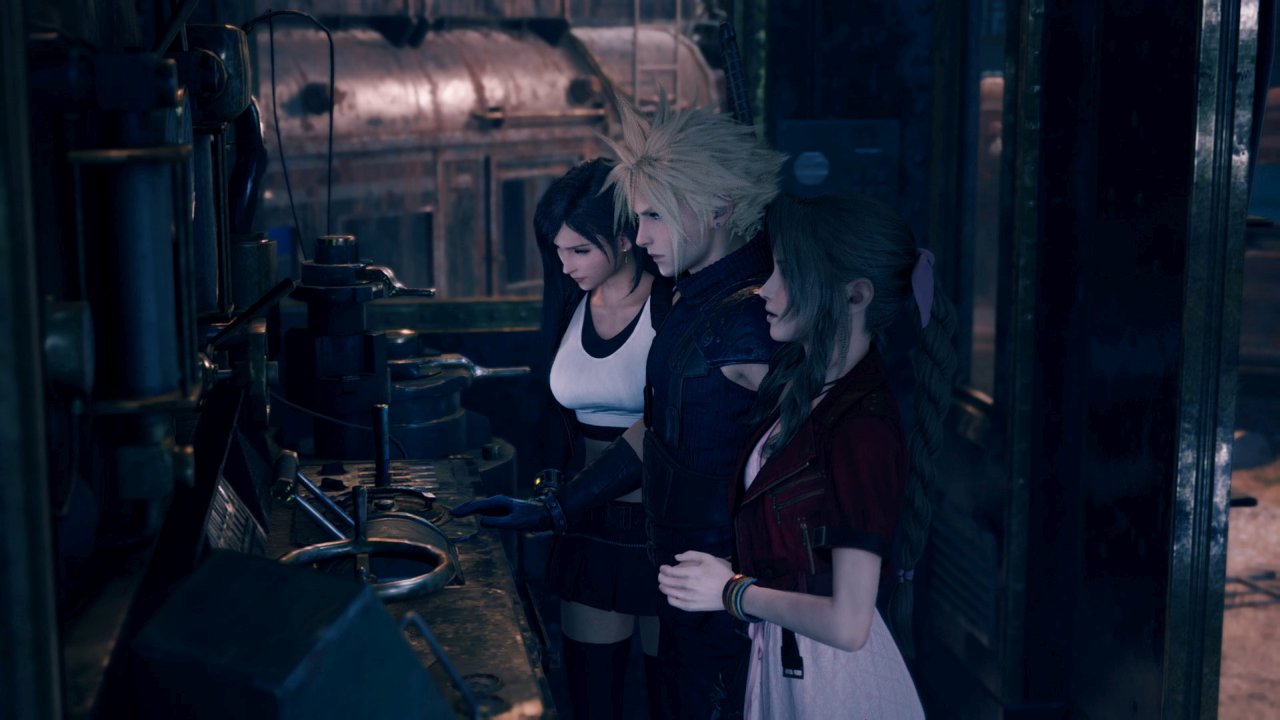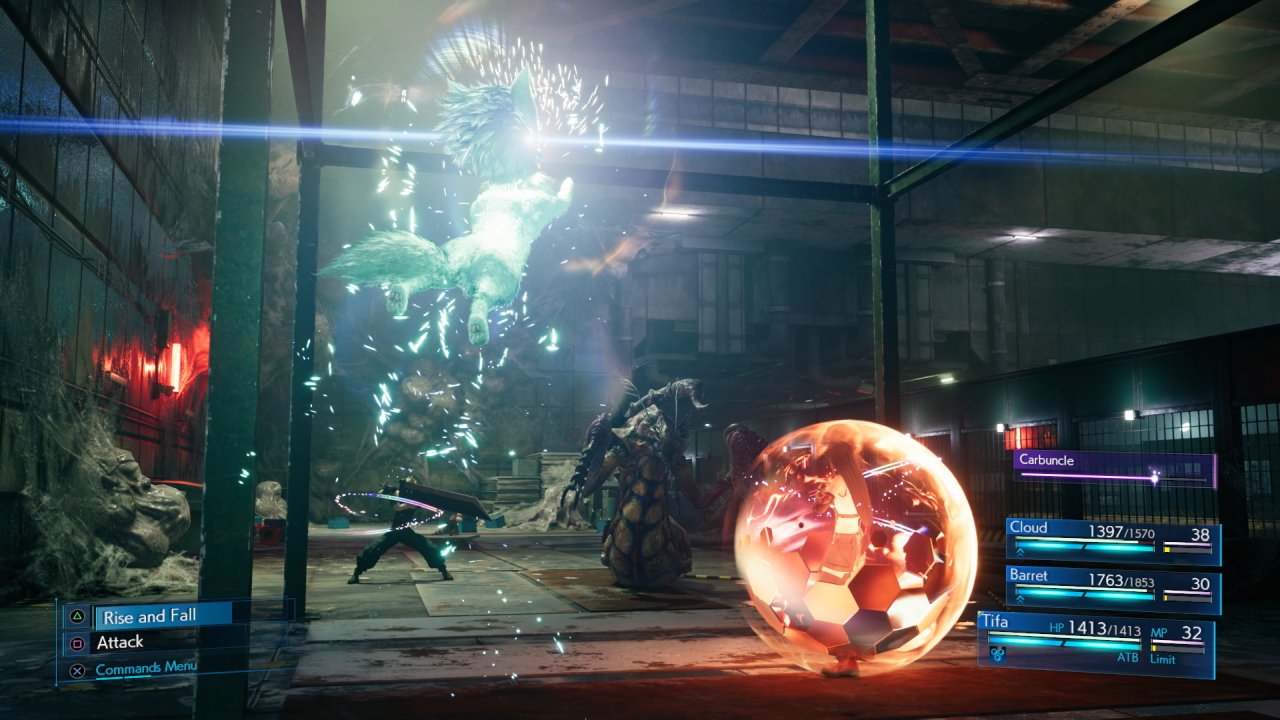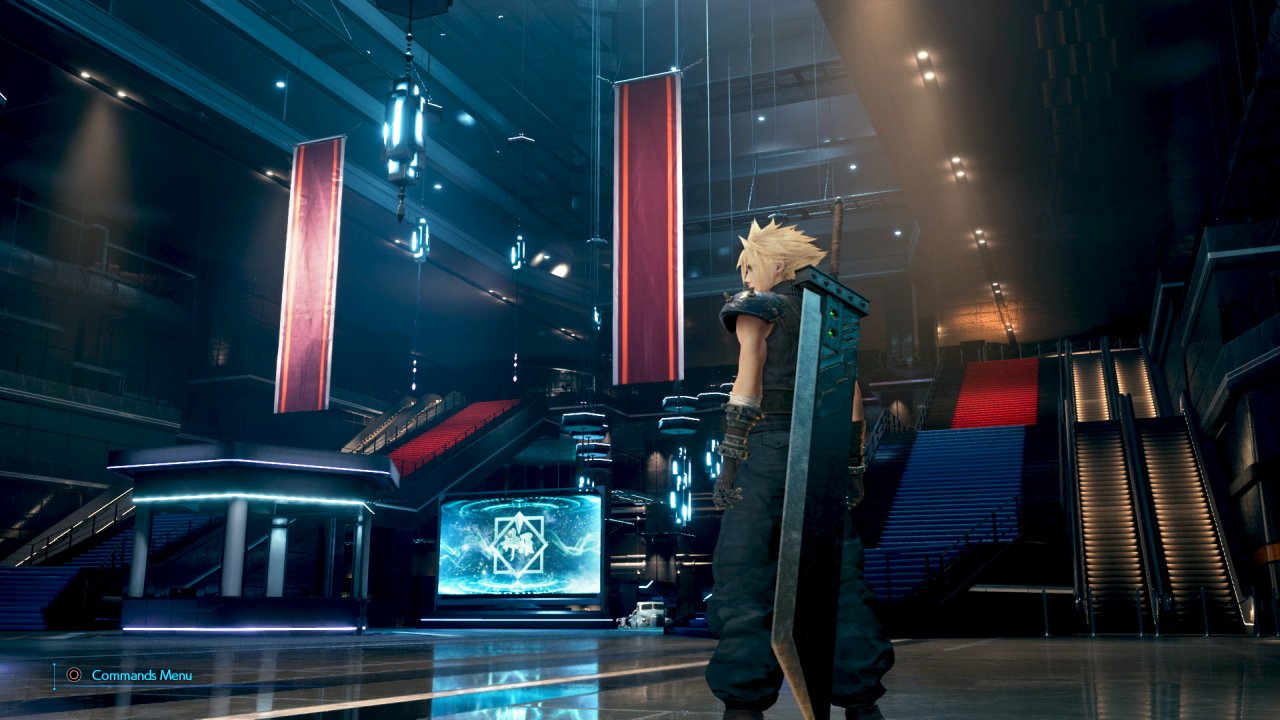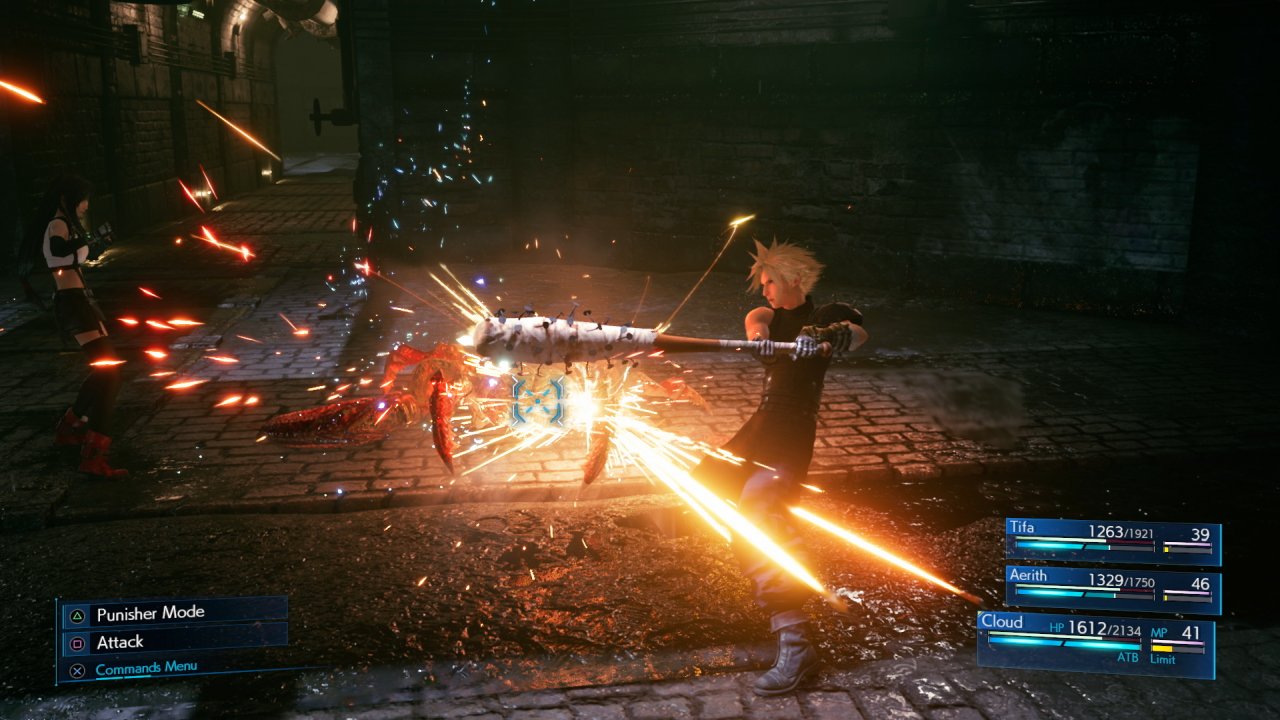Final Fantasy VII Remake Review
A return years in the making
I remember coming out of Avengers: Infinity War and thinking, "I'm glad I don't have to review that movie." Sometimes a product comes along that is more than art, more than media, more than cultural iconography. It's a mix of all the above, interweaving and layering on top of each other. A single piece of entertainment, meaning so many things to so many different people that it's roughly the equivalent of asking someone to review the cheese on the slice of a supreme pizza.

I think the Final Fantasy VII Remake is good - but I don't know how much that matters. Some fans are going to buy this Remake regardless; I know people who are buying PlayStation 4s (less than a year before the next generation is due) just to play this game. Trying to convince some fans otherwise would feel like an exercise in futility. And of course there's a matter of my own feelings toward the original game, which I've always respected but don't love the way others do. That being said, it's my duty to evaluate and by the time this review is over, you'll have a tidy score that tries to capture my feelings about this game - distilling the complex concoction of influences both on myself and the team that made Final Fantasy VII Remake into something that should resemble a score - so pray for me, because here we go.
Final Fantasy VII is a weird game. It was weird in 1997 when it first came out and the Remake is equally so. From the inescapable influence of 80s/90s cyber-future anime present in the aesthetic, to the hyper-political narrative of corporate over-reach and eco-terrorism, Final Fantasy VII rebukes much of the whimsical fantasy often present in this series. Narrowing the scope to Midgar, a grungy, dystopian sci-fi metropolis only serves to accent the strangeness of this entry. Running concurrent to these oddities is the gameplay which is a refined take on much of what was done in Final Fantasy XV, blended with elements of Final Fantasy XIII. There are influences of the cinematic storytelling found in most AAA video games today and side quests are presented and tracked like a Yakuza game. Final Fantasy VII is a petri dish of ideas, and yet what emerges from the ashes of this concept bonfire is something wholly unique and compulsively interesting. While the Remake may be a lot of things, it definitely isn't boring.
There are three credited directors on this game, but the two names that should be noted are Motomu Toriyama (the director of Final Fantasy XIII and the sequels) and Tetsuya Nomura (the man behind Kingdom Hearts). The influence of directors in video games can vary project to project, but these two individuals have such distinctive styles it's impossible to avoid their flair. The level design smacks of Kingdom Hearts as does the action-RPG blend that has players constantly cycling through control of three characters as you progress through a series of linear corridors. The combat relies heavily on a stagger system that is reminiscent of Final Fantasy XIII. Yet, while there is modernization to the game; there is also a reverence for work they are re-imagining. Character beats and narrative moments are so lovingly recreated there's an earnestness that is infectious, yet it still manages to be something distinctly its own, especially with a polarizing ending. That doesn't always mean it's done well. There are moments when the game threatens to fall apart, whether due to elongated level design that prompted me to roll my eyes, or combat arenas so oppressively tight they become hard to navigate. Sometimes the Remake feels like it's going off the rails only to desperately pull itself together to deliver another redeeming moment.

At this point, Final Fantasy VII is so ubiquitous in pop-culture, repeating the storyline feels redundant, so I'll be brief. Cloud Strife is an ex-SOLDIER recruited by an eco-terrorist outfit named Avalanche. While running a mission that goes wrong, he meets Aerith, a too-pure-for-this-world flower girl who is coveted by the Shinra Corporate Oligarchy. As the battle between Avalanche and Shinra escalates, Cloud finds himself forced to confront his past and stand up for what he believes in. The majority of the story has remained intact but has largely been recontextualized to better fit this game as a first chapter in a larger story. And this really only feels like the first chapter; sometimes it feels like only a prologue. The game ends with a twist that explains that this was fun, but the real story now begins. It's kind of a cop-out, allowing the game to both be a faithful re-creation and be different. Further, this is part one of a multi-part story, spreading out the original game over multiple releases. It's also different in ways that you probably aren't expecting.
So much about what I like in Final Fantasy VII (1997) actually plays out later in the game, so the narrative beats in the remake didn't quite grab me, but the ending has me curious as to how the rest of the series will play out. Narratively, it makes it difficult to dig into what is good and what isn't because so much is teased and not much is resolved. That might frustrate you as a player, seeing as we have absolutely no idea when some of the hanging plot threads will see continuation.
The core of the gameplay is cribbed from Final Fantasy XV, but shoved into smaller, more intimate spaces. You start every fight as Cloud, but are expected to cycle through characters as fights progress to use their different abilities. Your roster expands to include many of the staple characters from the original game - Barett, Tifa, Aerith, Red XIII - that gang's all here. This style of combat works - certain attacks feel great to pull off and the rhythm of the fights is fun. Popping over to one character to perform a healing spell, switching to another to use a special attack, churning up to a limit break, a special attack that affects the battle in a large way - and that feels good. It makes the longer, more involved fights more rewarding. But the smaller fights felt like a grind. The developers mix and match sets of enemies through various corridors and it often leads to repeating the same exploitations over and over. To some degree that does feel faithful to the original game, though I don't think these smaller encounters are rewarding - more like busywork to level up so you have more skills and abilities.
I think the progression is also hit and miss. Leveling up has become so inevitable and unremarkable in modern game design, it's hardly worth mentioning, but you do have to slot Materia into your characters and equip items. I know people don't come to a game like this for the loot, but the implementation of it feels uninspired. I prefer the Materia system which allows players to slot the magical abilities into armor and weapons - allowing you to mix and match spells. This kind of customization is fun and certain boss fights will punish you if you're ignoring it.

While fighting monsters and Shinra, the game becomes linear, funneling you through corridors and combat arenas, spitting you out at open hubs which contain sidequests, stores, and places to flesh out the world. It's a half-measure that doesn't always work. Some of these places like the Wall Market are inspired and are fun to explore and move around in. Other places, like Aerith's hometown, are pretty boring. Keeping the game in Midgar slums means that the time spent navigating around dilapidated buildings and through rubble is high. I couldn't say if there are recycled assets (though you do have to backtrack a few times) but everything has a feeling of Déjà vu. Didn't I just see that pile of broken concrete? Didn't I just walk over this metal ramp? How many rusty ladders must I climb over these 40 hours? Luckily the side content awaiting you is usually more interesting. There are still quests that require you to fight five things and return, but most of the side quests have stories tied to them that are worth seeing through. There are also mini-games that are a mixed bag. A rhythm dance game is an absolute blast, but I didn't need to play more than one round of darts before being bored by it.
While I feel like elements of the aesthetic are sometimes used repeatedly, some stuff is interesting. The world has become more contemporary; trains are filled with lifetime employees dressing business formal, and the upper streets of Midgar don't look much different than current day metropolises, with the usual traffic of a downtown. It's a little weird seeing someone who looks like they work in the New York Financial District exchanging words with a hulking giant of a man who has a Gatling gun instead of an arm, but sometimes it makes the pain and suffering of Midgar a little more immediate.
Where the game lost me was in the English voice-over. Much of the animation work - including gestures, facial expressions, and cinematography are rooted in Japanese media. The emotional swings are over-the-top; there is a bizarre amount of thumbs up, and cheesy smiles for the camera. And while the English voice actors are giving it their all to try and stay grounded while delivering vocal performances to match the action on screen, it never quite gels together. After changing to Japanese and using the subtitles, I found the candor of conversation and the vocal energy a better fit. While the voices may sound off at first, the music is great from start to finish. At first, I was worried that it was leaning a little too heavily on the themes from the original game, but by the end it had really come into its own with a lot of interesting sounds that capture its other-worldly modern sci-fi aesthetic.
The game also runs incredibly well. The detailed visuals didn't over-tax the base model PS4. By now I think we've all grown accustomed to the fact that our PlayStations sound like they're jet engines revving up for take-off, but as far as load times, or quality of what's on-screen, it's impressive how smoothly everything runs. Part of this might be how well the game hides load times behind things you can interact with in the world. However they managed to pull it off, it's rather impressive.

I'm obviously a bit mixed on Final Fantasy VII Remake. There are elements, like Cloud's dancing audition at the Honey Bee prior to him donning drag to rescue Tifa, that are just incredible. Even subtle moments like a vulnerable conversation between Cloud and Barrett will stick with me for a long time. And yet, there are negative design elements that also stick out. I remember how flipping between characters to simply trigger different healing spells felt tiresome as certain fights dragged out too long. There's a point when the game starts to double back over areas already visited that felt repetitive. As I calibrate the highs and lows, I can't get over how interesting I found it all. The reason I spend so much time examining the overlapping influences and interesting car crash of ideas is that I can't stop thinking about them. Say what you want about Nomura and Toriyama, but the duo are successful at creating art that is polarizing but still worthy of discussion. So while I can't guarantee you'll enjoy Final Fantasy VII Remake (especially the divisive ending) I can promise that you'll walk away from the game with plenty to talk about, and that dialogue will hopefully keep us occupied until the next chapter arrives.
 Comments
Comments




















